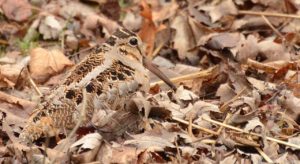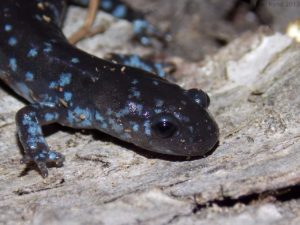
By Meg Muckenhoupt
So much is still uncertain. Organizations that normally form the bulk of the Belmont Citizens Forum’s event listings are quiet online, leaving their web pages blank and their calendars empty. No one trusts the future to allow us to meet, to learn, to pause to observe the natural world—or grieve the activists who are gone. The Belmont Historical Society, Friends of Fresh Pond Reservation, the Charles River Watershed Association, the Native Plant Trust; if they have anything listed, it’s for a Zoom video. We are all tired of Zoom videos.
Here is what I know for certain about what will happen in and around Belmont in the coming months.
Woodcocks Will Peent
In early to mid March, the woodcocks will begin their nuptial flights over open grassy areas. In Belmont, they’ll be appearing in Rock Meadow and the Alewife Reservation. This Mass Audubon article (bit.ly/BCF-Woodcocks)will tell you where to look … or, rather listen. Woodcocks are mottled brown birds slightly larger than robins, and only begin their mating flights at dusk, making them even harder to see. Although one videographer managed to capture images of a woodcock at Rock Meadow(bit.ly/BCF-Rock-Woodcock), the most obvious sign of a woodcock during mating season is a repeated buzzy, loud PEEENT call. As that Mass Audubon blogger writes:
“Keep an ear out for a woodcock’s sharp, nasal “peent!” from sunset to half an hour afterwards. The woodcock will take off after a few calls, wheeling and diving in the sky as their wings produce their signature twitter. Then, the bird dives steeply, its wings continuing to whistle as it falls to the ground to start over.”
In real life, observing a woodcock during its evening flight feels like sitting in an IMAX movie theater while the projector is testing the surround-sound speakers. You can hear fluttering in a circle with a vast diameter as it spirals up into the sky, but actually seeing the bird is unlikely.
If you’d rather test your own system, Mass Audubon is offering an online course titled “The American Woodcock,” Thursday, March 11, 7–8 PM (Mass Audubon members $15, nonmembers $20.) As Audubon’s anonymous catalog author writes, “This presentation will introduce you to the woodcock, its unique adaptations and life cycle, and the courtship dance they’re famous for. How are woodcock populations doing in Massachusetts and the northeast, and how can we best protect them? Discover when and where to look for woodcocks on your own or through a Mass Audubon sanctuary to witness their displays this spring.”
Salamanders Will Slink
Every year, spotted and blue-spotted salamanders and wood frogs return to local vernal pools to mate. Although these creatures tend to trickle in over the course of a few weeks, there is usually a “big night” around the date of the spring equinox (Saturday, March 20, this year.) It will be a night when it’s raining steadily, if lightly, and the temperature is over 40°F. The next morning, you can find salamander egg masses attached to branches in the pool and a few shy salamanders scurrying under submerged leaves. The adults depart over the next few weeks; the young will hatch and leave before the vernal pool dries up to become summer dirt.
Mass Audubon is offering an online class titled “Spring’s ‘Big Night’” on Friday, March 26, 7–8:30 PM (Members $20, nonmembers $24. Register at bit.ly/BCF-Big-Night). Attendees will learn to identify vernal pools,hear about an innovative conservation and education project to restore and create vernal pools, and learn about what Mass Audubon is doing to make vernal pools more resilient in the midst of habitat loss and climate change.
Habitat also offers courses on ducks and waterbirds, frogs, nature writing, and birding by ear.
Legislators Will Listen to Lobbyists
This year, one of those lobbyists could be you. The Massachusetts River Alliance is sponsoring a virtual “Lobby for the Rivers Day” on Thursday, March 18, where you can connect with legislators, water conservation organizations, and fellow river enthusiasts. Meetings will be from 15 to 30 minutes to discuss your top concerns regarding rivers and our environment and natural resources. Register by March 5 at bit.ly/BCF-River-Lobby. New citizen-lobbyists should also attend the “Pre-Lobby Day Workshop” on Tuesday, March 16, at 7 PM. Registration is free.
There Will be Trash at Lone Tree Hill
Unfortunately, the Belmont Citizens Forum will not be able to sponsor a Lone Tree Hill cleanup day on Earth Day (April 22) in 2021. We encourage you to go out and celebrate the Earth by picking up garbage at Lone Tree Hill on Earth Day, and every other day of the year.
The Grass will Grow Again
Perhaps, though, grass isn’t the only thing that should be growing in your lawn. The Native Plant Trust is offering a “live webinar” called “Diversify Your Lawn.” The catalog states, “Who says lawns need to be monocultures or only made of grasses? Enrich the traditional lawn with other complementary plants that bloom at different times and add intrigue. Learn how to identify the plants that already grow in the lawn as ‘weeds,’ and to incorporate new plants that create a rich, wildlife-friendly tapestry.” Catch it Tuesday, March 23, 6:30–7:30 PM. Register at the Native Plant Trust site at bit.ly/BCF-Lawn-Class. Cost is $12 members, $15 nonmembers.




Sorry, the comment form is closed at this time.